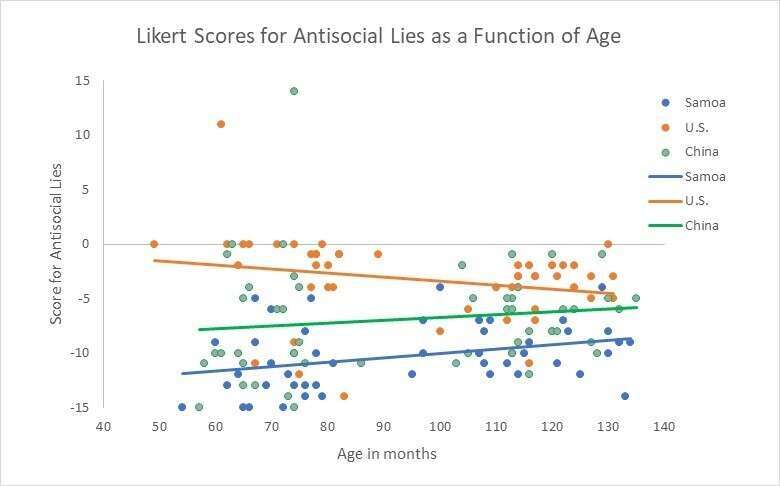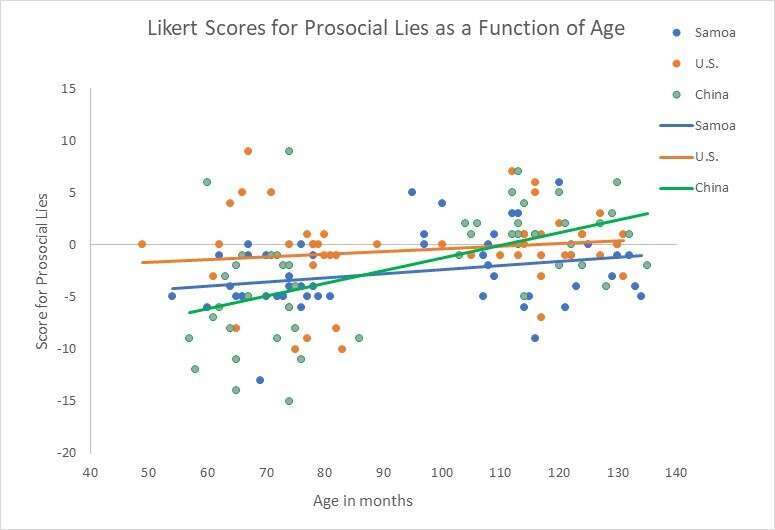
Children’s Evaluation of Prosocial and Antisocial Lies across Three Cultures: Samoa, the U.S., and China
Across three cultures (rural traditional Samoa, urban U.S., and China), we tested 147 4-11-year-olds’ evaluation of various lies from a third person perspective: three prosocial lies (altruistic, respectful, and understated lies), and three antisocial lies (selfish/self-maximizing, Schadenfreude, and exaggerated lies). The children were matched for age and gender across cultures (49 in each culture; 25 males). Children were told six stories involving two puppets, one telling various lies to the other, plus a control story with no lie telling. Following each story, children were given the option to distribute justice by either rewarding the lying puppet with up to five candies, or punishing it with up to five spanks, which was later converted into a continuous Likert score from -5 to +5.
A mixed-factorial ANOVA shows a main effect of culture (F (2, 124) = 11.73, p = .000, ηp2 = .159), but not age (F (7, 124) = 2.01, p = .059, ηp2 = .102), on children’s Likert scores of antisocial lies and prosocial lies. Significant interactions were found between culture X type of lies (F (2, 124) = 9.71, p = .000, ηp2 = .135), age X type of lies (F (7, 124) = 2.51, p = .019, ηp2 = .124), and culture X age (F (13, 124) = 1.80, p = .050, ηp2 = .159). Follow-up pair-wise comparisons reveal that Samoan children evaluated antisocial lies significantly more negatively compared to both Chinese and American children (p = .000). Additionally, we found a significant culture X age interaction (p = .025) on children’s evaluation of prosocial lies. Specifically, only Chinese children evaluated prosocial lies significantly more positively as a function of age. These results highlight the importance of cultural factors in the development of children’s general construal and evaluation of deception, a major aspect of social cognition.



Powered by Eventact EMS